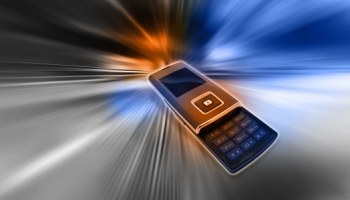O2 To Launch Virtual Wallet For Mobile Payments

O2 is planning to offer mobile payments, on the heels of Everything Everywhere’s NFC announcement
Mobile operator O2 is reportedly jumping on the mobile payments bandwagon, with an application to the Financial Services Authority for a licence to operate its own ‘Near-Field Communications’ network.
The service will allow O2 to hold money on behalf of its customers in a virtual “wallet”, enabling them to use their mobile phones to make purchases and send money. The company has confirmed its intention to launch the service – which will also be available to non-O2 customers – in the second half of 2011.
More than mobile payments
 “The O2 wallet concept is about bringing the physical wallet and its contents to the mobile,” said James LeBrocq, O2’s managing director of financial services. “This can include payment cards, loyalty cards and cash. But it goes beyond paying for things. It’s really about being a house for a variety of services for customers on the go”.
“The O2 wallet concept is about bringing the physical wallet and its contents to the mobile,” said James LeBrocq, O2’s managing director of financial services. “This can include payment cards, loyalty cards and cash. But it goes beyond paying for things. It’s really about being a house for a variety of services for customers on the go”.
An O2 spokesperson told eWEEK Europe that the company is preparing for the launch by recruiting a number of financial services experts to the O2 Money team, partnering with specialised payments and processing partners and submitting an application for an e-money licence.
“Having the e-money licence will mean we are fully in control of the financial services products we launch,” said the spokesperson.
O2 conducted a trial of its NFC technology in London between November 2007 and May 2008. Convenience, ease-of-use and the status of having such an innovative device were seen as the main benefits. Full details of the new service will be unveiled nearer the time.
Industry gears up for NFC adoption
The news follows just over a week after Everything Everywhere – the combined entity of UK mobile operators Orange and T-Mobile – unveiled plans to roll out a mobile payments service, in collaboration with Barclaycard. The service also uses Near-Field Communications (NFC) – a technology that can beam and receive information at a distance of up to 4 inches – to process payments.
“This is the beginning of a revolution in how we pay for things on the high street. It’s a cultural shift that is as important as the launch of the personal credit card or ATMs,” said Gerry McQuade, chief development officer of Everything Everywhere, at the time.
Mobile phone maker Nokia has been pushing NFC adoption for years, but the technology has been fairly slow to take off.
“Different secure elements for NFC methods have allowed different technology players in industries such as telecoms operators and electronic device manufacturers to establish their own payment infrastructure,” explained Frost & Sullivan global program director Jean-Noël Georges. “This lack of harmonisation has been an obvious restraint for the NFC industry”.
However, smartphone and tablet manufacturers such as Google, Apple, Research In Motion and Nokia are all now building NFC into their future devices.
In December, industry analysts iSupplipredicted that the use of mobile devices for payments would begin to take off in 2011, with 2012 being a ‘make or break’ year for the technology.